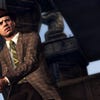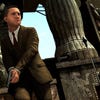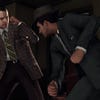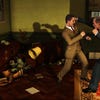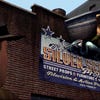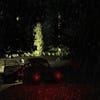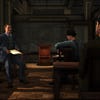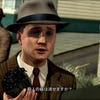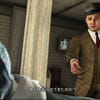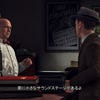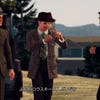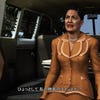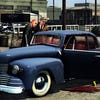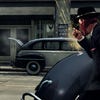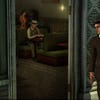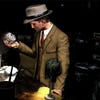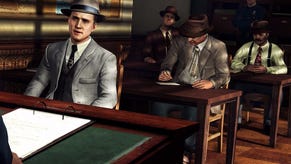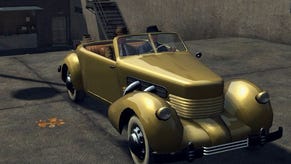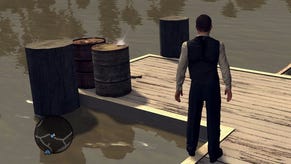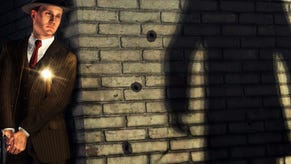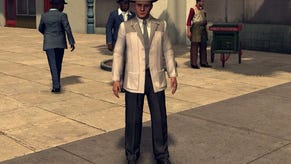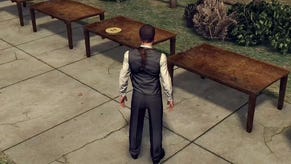L.A. Noire
Face value.
The detective thriller isn't new to video games. It was often spoofed or pastiched in the PC adventure games of the nineties, and it's recently been revived in a spate of 'visual novels' and casual puzzle games.
But there's never been such a high-profile attempt to bring this popular form of fiction to the video gaming mainstream as L.A. Noire. Rockstar's latest - produced by Australian studio Team Bondi - is pure police procedural. Cinematic production values, elaborate animation techniques and acting talent by the hundredweight have been brought to bear on the dogged business of collecting evidence, interrogating suspects and unravelling plots.
L.A. Noire's writer-director, Brendan McNamara, was one of the first to follow Rockstar North's trailblazing Grand Theft Auto III with his 2002 crime caper for Sony, The Getaway. Now under his inspiration's wing, he's succeeded in creating one of the more distinctive variations on the evergreen GTAIII template. L.A. Noire resembles a cross between GTA, Ace Attorney and Heavy Rain - and it's almost as interesting as that makes it sound.
If the mention of David Cage's psychological thriller makes you think of the term 'interactive movie', you wouldn't be far wrong. But it might be more accurate to describe L.A. Noire as an interactive DVD box set. It's largely linear, but long and very episodic. You play as straight-arrow LAPD detective Cole Phelps (Mad Men's Aaron Staton), cracking 21 cases in succession, most lasting 40 minutes to an hour.
There are connections between the cases, but these, the overarching storyline and Phelps' character only come into focus slowly - very, very slowly. You're into the game's second half before it really starts to come together.
At least you can enjoy the ambiance along the way. One of Rockstar's greatest talents is for transposing iconic slices of pop culture - Miami Vice, Spaghetti Westerns or the gangster rap myth - into games with perfect tone and timing and an uncanny sense of cool. In L.A. Noire, it has performed its most surgical transplant yet.
While its roots are in forties film noir and the cynical mysteries of crime writers like Raymond Chandler, the 1947 Los Angeles of the game's setting is unmistakably the one described (in a staccato stream of expletives) by a more modern but no less hard-boiled author, James Ellroy. You'll recognise it from the film of one of his most famous books, L.A. Confidential: a city whose seedy glamour is built on a tar pit of inequality, brutality, conspiracy and corruption. A city haunted by serial murders, where vice and show business walk hand-in-hand.
As a work of world-building, L.A. Noire is sensational. Rockstar has nailed L.A.'s infinite sprawl and sulphurous, smoggy vibe before, in GTA: San Andreas and the last Midnight Club. But it's the fastidious period detail that really impresses this time, and you have plenty of time to drink this in during the game's languid investigation sections.
The rich atmosphere owes much to the music, too. Andrew Hale's excellent score blends L.A. Confidential's signature muted brass with the ominous swells of Bernard Herrmann's classic Taxi Driver soundtrack, and hustles chase scenes along with urgent jazz.
McNamara's script is also at its best establishing context, painting a picture of L.A. at a fascinating and dangerous crossroads. The city is an uneasy mix of racial tension and the suppressed trauma of a violent war, of drugs and alcoholism and misogyny, all of it about to be smothered under that superstructure of giant freeways. Anarchic bebop clashes with smooth swing on the radio; even the music seems to be spiralling out of control.


